Labour conference: Five big things that happened
- Published
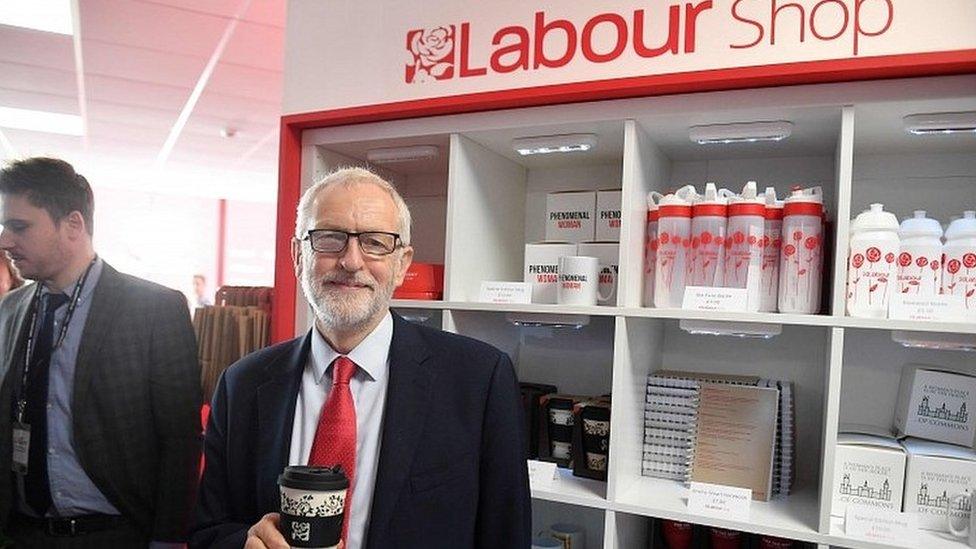
The Labour conference has drawn to a close.
Jeremy Corbyn's big speech was brought forward a day, so he could return to London in time for Parliament to sit again.
There were debates and votes on Wednesday morning, but by then most MPs had returned to Westminster.
So what have been the highlights of Labour's five days by the seaside?
Battle of Brexit
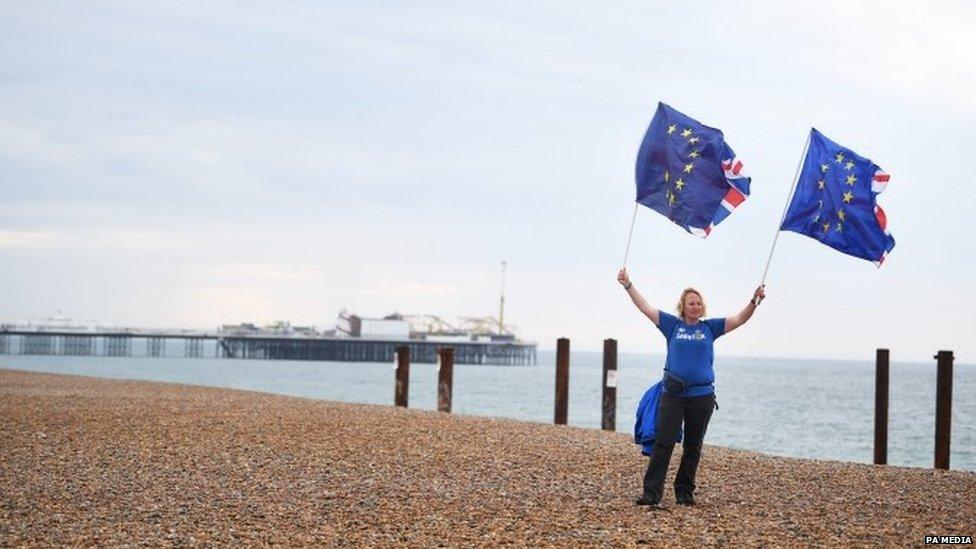
Attempts by pro-European activists to commit the party to an explicitly pro-Remain stance was perhaps the most serious grassroots challenge to Jeremy Corbyn's authority since the 2017 general election.
At one stage on Monday, after Unison threw its weight behind the pro-Remain motion, the leadership seemed to be at serious risk of defeat.
But, in the end - albeit not without controversy - the conference swung behind the Labour leader following a series of passionate floor speeches urging loyalty.
So Labour is left with a policy - backing another referendum choice between Remain and a credible Leave deal and remaining neutral on which side to back until closer to the time - that many in the party are dissatisfied with.
But, make no mistake, this was a major victory for Mr Corbyn after a tricky few days.
Deputy dig
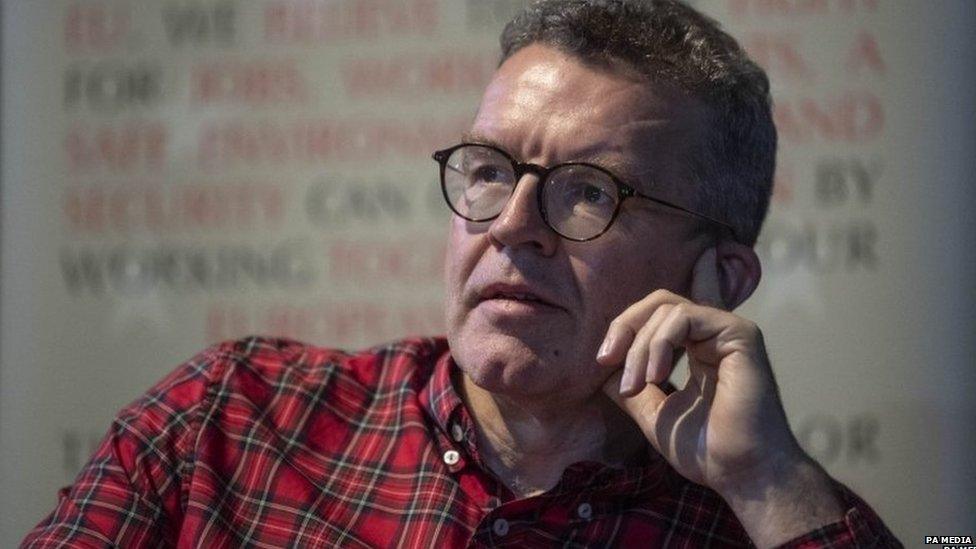
Tom Watson described attempts to scrap the position of deputy leader on the eve of the conference as a "sectarian attack" and a "drive-by" shooting.
After intervention by Jeremy Corbyn, there will now be a review of the position of deputy leader - an elected position in its own right held in the past by the likes of Harriet Harman, John Prescott and Roy Hattersley.
There is talk of dividing it into two - with one of the posts definitely being held by a woman.
But the move against Mr Watson - orchestrated by Momentum chair Jon Lansman and backed by two senior members of the shadow cabinet - has further aggravated the already fractious relationship between the leadership and much of the parliamentary party.
Policy prescriptions

The backroom bickering going on in Brighton - which also saw the resignation of one of Mr Corbyn's key aides - should not hide the fact there were some huge policy announcements.
A pledge to move to a 32-hour working week within 10 years and to introduce free personal care for over-65s in England will have huge economic and social implications.
Health and education took centre stage, with commitments to scrap prescription charges in England, to double GP training places, to require employers to offer flexible working for menopausal women and to replace regulator Ofsted with a less "heavy-handed" body.
But it was a proposal from the conference floor - calling for private schools to be integrated into the state sector and their assets redistributed - which caused the most controversy.
Delegates enthusiastically backed the plan, which would also see fee-paying schools lose their charitable status, but some shadow cabinet members distanced themselves from its more radical aspects amid warnings of litigation and talk of class war.
Sea of hands
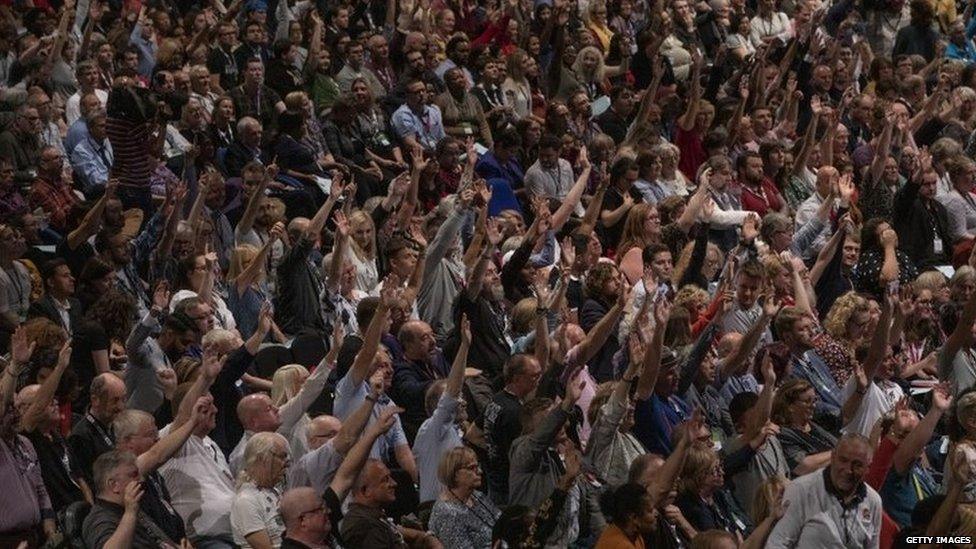
Chair of the NEC Wendy Nichols had the plum job - some would say the misfortune - of presiding over the big Brexit debate.
It all went pretty smoothly, until it came to the votes.
These things are normally done by a show of hands but, with passions running high, there was momentary confusion whether the key vote on Composite 13 - the pro-Remain argument - had been "carried" or "lost".
At one stage, Ms Nichols appeared to be contradicted by Jenny Formby, the party's general secretary sitting next to her. There were calls for a formal count - a so-called card vote - which would have delayed things by several hours.
In the end, both sides accepted the result - described as "democracy in action" - but what those outside of the hall made of the spectacle, who knows.
Truncated speech
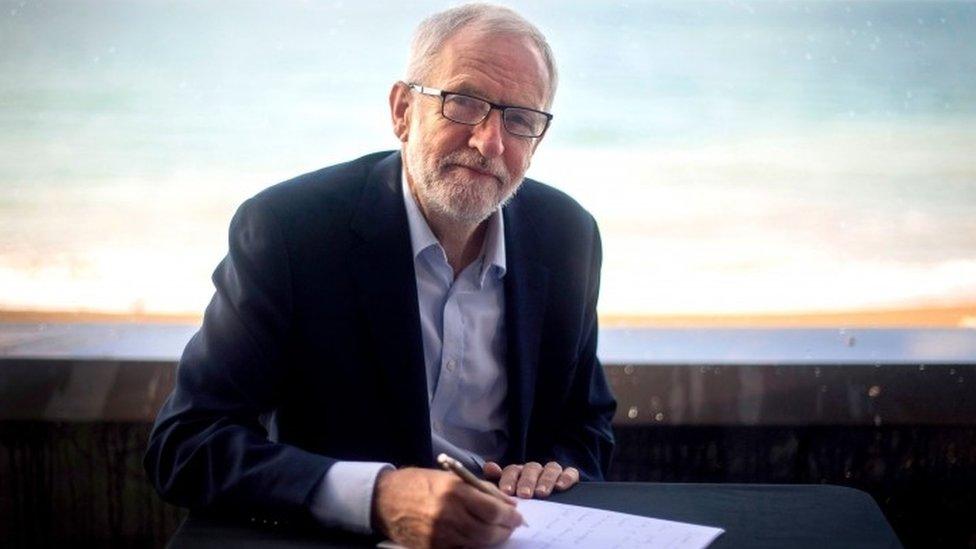
Leaders' conference speeches are traditionally state of the nation affairs.
They are the one time in the year when leaders can expand at length about who they are as well as what they want to do for the country. As a result, they can go on a bit.
This one didn't.
For various reasons, Jeremy Corbyn's speech - quickly rescheduled after the Supreme Court ruled Parliament had been unlawfully suspended - was shorter than we have become accustomed to in recent times.
He dealt with several topics - including an attack on Boris Johnson, Brexit, a pledge to challenge drug firms - but didn't touch on many of the pledges made during conference.